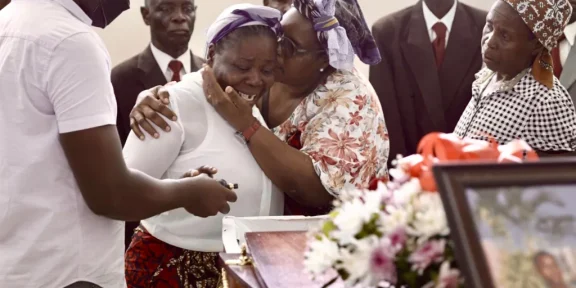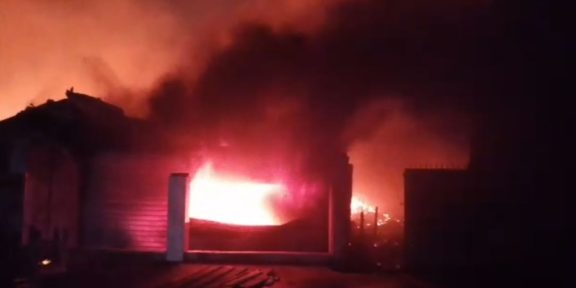Although there is no universally agreed-upon definition of terrorism, the United Nations General Assembly describes it as “criminal acts intended or calculated to provoke a state of terror in the general public, a group of persons, or particular persons for political purposes [that] are in any circumstance unjustifiable, whatever the considerations of a political, physiological, ideological, racial, ethnic, religious, or any other nature that may be invoked to justify them.”
Since the 9/11 incident, terrorist groups globally have shown their ability to evolve and improve their tactics, techniques, procedures, and targets. These groups in the western world have expanded their territories to the African continent, exploiting thousands of extracontinental migrants and individuals from various African countries. Former Al Qaeda leader, Osama Bin Laden, justified attacking American civilians by arguing that “as citizens of a democratic state who elected their leaders, they bore responsibility for their leaders’ actions.” Consequently, allies of the United States are often viewed as enemies by jihadists.
There has been a notable increase in terrorist attacks in recent years. According to data from the Global Terrorism Index, terrorism-related deaths increased by 22 percent to 8,352 fatalities, marking the highest level since 2017. However, the total number of terrorist attacks fell by 22 percent, the lowest recorded since 2009. The number of countries experiencing at least one attack also decreased from 60 in 2022 to 50 in 2023. The rise in fatalities can be attributed to larger attacks, especially among Islamic militant groups such as Boko Haram in Nigeria, the Islamic State (IS), and JMIN.
Sub-Saharan Africa recorded the most terrorist attacks in 2023, with the Sahel region being particularly affected. Ghana, surrounded by countries that have experienced terrorist attacks in recent years—Burkina Faso, Togo, and Côte d’Ivoire—faces potential threats. Neighboring countries like Mali, Benin, and Nigeria have also been targets of terrorist groups. Major groups such as the Islamic State, Al-Shabaab, and Boko Haram have been responsible for significant attacks.
The suicide bombing in Ivory Coast serves as a warning to coastal countries. Ghana’s National Security estimated that “Ghana and Togo were the next targets of terrorist attacks after the attacks in Burkina Faso and Ivory Coast.” The attack on November 9, 2021, in Sanloaga, Togo, indicated that Ghana might be at risk. The porous nature of Ghana’s borders and the proximity of its northern region to Burkina Faso heighten the threat.
Burkina Faso is currently the country most impacted by terrorism worldwide. Deaths surged from 1,135 in 2022 to 1,907 in 2023, a 68 percent increase. For the second consecutive year, over a thousand people were killed in terrorist attacks in Burkina Faso. It is estimated that a quarter of all terrorism deaths globally occurred in Burkina Faso, with most attacks near the country’s borders with Niger and Mali. Civilians are often the targets of these attacks. Jamaat Nusrat Al Islam wal Muslimeen (JNIM) and the Islamic State are the most active terrorist groups in Burkina Faso, leading to an increase in the lethality of their attacks.
Key factors enabling terrorist groups to gain a foothold in a country include poor local governance and the infringement of human rights. In northern Ghana, the local government’s failure to provide basic social amenities, such as infrastructural and recreational facilities, contributes to vulnerability. Discrimination against second-generation Fulani herders is also prevalent. When individuals feel discriminated against, they may become susceptible to recruitment by jihadist groups who share their religious beliefs.
While the Ghanaian military, with foreign assistance, may manage to detain or kill terrorists, new fighters may continue to emerge if local governance remains unfavourable.
In 2024, it is crucial for citizens to elect leaders who can effectively respond to their needs and avoid leaders with selfish interests. Gaps in basic social services can be exploited by jihadist groups, who often provide these amenities themselves. The current conflict in Bawku could be advantageous to these groups, as they may support conflicting ethnic groups with weapons or funds.
Terrorist groups have multiple revenue streams, including oilfields, extortion, taxation, ransom payments, and donations from Gulf states. The Islamic State, for example, has evolved from external reliance to internal self-sufficiency. An American official in 2014 stated that the Islamic State paid its fighters around 400 USD, equivalent to 5,196.74 Ghana cedis. This financial incentive could attract discriminated Fulanis or unemployed Ghanaians, especially given the relatively low and often delayed payments to national service personnel.
With five African countries listed among the ten most impacted by terrorism according to GTI ranks from 2011-2023, the future of security in Africa is uncertain. The impact of terrorism is profound and challenging. Addressing this issue may require incorporating education on combating terrorism and extremism into the junior high and secondary school curriculum, recognizing that youths are particularly vulnerable to these threats.






























